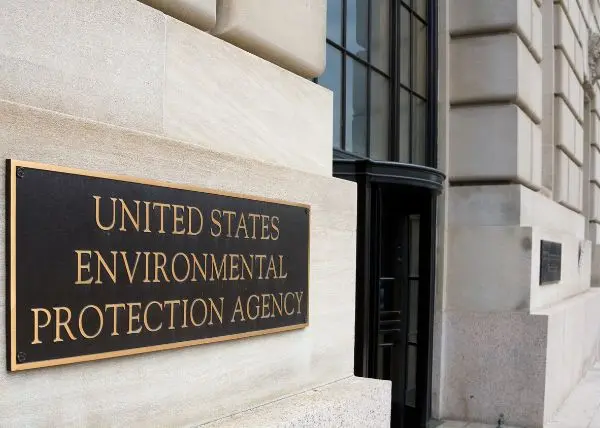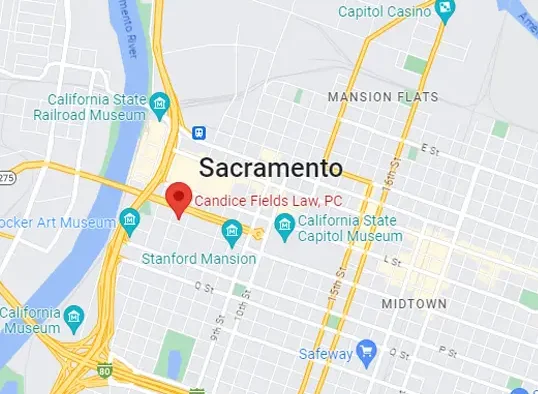Clean Water Act Violation Defense Lawyer
At Candice Fields Law, we understand the complexities of environmental regulations, including those enforced under the Clean Water Act (CWA). As a leading defense law firm, we have experience in representing businesses and individuals facing allegations of violating the Clean Water Act. Our goal is to provide experienced legal counsel and robust defense strategies to mitigate the impact of these charges on your operations and reputation. For immediate assistance, contact us today.
What is the Clean Water Act?

The Clean Water Act (CWA) is a significant federal law that regulates the discharge of pollutants into the United States' waters and sets water quality standards for surface waters. Enacted in 1972, the CWA aims to eliminate the discharge of pollutants into navigable waters and achieve water quality levels that are fishable and swimmable.
Key Provisions of the Clean Water Act:
- National Pollutant Discharge Elimination System (NPDES): This permit system requires industrial, municipal, and other facilities to obtain permits if they discharge pollutants directly into surface waters. The NPDES permit limits what can be discharged and includes monitoring and reporting requirements.
- Standards for Water Quality: The CWA requires the Environmental Protection Agency (EPA) and individual states to maintain and enforce water quality standards to protect rivers, lakes, and streams from pollution. These standards are tailored to specific water bodies and their intended uses, such as recreation, drinking water, or agricultural supply.
- Protection of Wetlands: The CWA includes provisions for protecting and managing wetlands, which are critical habitats for many species and act as natural water filtration systems. Permits are required for the discharge of dredged or fill material into wetlands.
- Oil and Hazardous Substance Liability: The CWA regulates oil spill containment, cleanup, and liability. It ensures that parties responsible for spills are held accountable for the environmental damage they cause.
- Funding for Wastewater Treatment: The act originally provided federal funding for constructing municipal sewage treatment plants under the Construction Grants Program. While this program has ended, other funding mechanisms continue to support wastewater treatment infrastructure.
What Constitutes a Violation of the Clean Water Act?
A violation of the Clean Water Act (CWA) occurs when any person or entity fails to comply with the provisions set forth in the law, which are designed to protect the water quality of the United States. Violations can vary widely in terms of severity and the nature of the non-compliance. Here are some of the most common types of violations under the Clean Water Act:
1. Discharging Without a Permit
One of the CWA's primary provisions requires facilities that discharge pollutants directly into surface waters to obtain a National Pollutant Discharge Elimination System (NPDES) permit. This permit specifies limits on what can be discharged, monitoring and reporting requirements, and other compliance standards. Discharging any pollutants into navigable waters without an NPDES permit or violating the permit’s terms constitutes a violation.
2. Non-Compliance with Permit Requirements
Even if a facility has an NPDES permit, failing to meet the specified conditions of the permit (such as discharge limits, monitoring obligations, and reporting procedures) also constitutes a violation. This can include exceeding pollution discharge limits, failing to maintain proper records, or not submitting required reports on time.
3. Improper Management of Spills
The CWA requires properly managing oil and hazardous substances to prevent spills into navigable waters or adjoining shorelines. Facilities must have a spill prevention, control, and countermeasure (SPCC) plan. Violations occur when these plans are improperly developed, poorly implemented, or fail to contain a spill effectively.
4. Unauthorized Dredge or Fill Activities
Under Section 404 of the CWA, discharging dredged or fill material into waters of the United States, including wetlands, without obtaining a permit from the U.S. Army Corps of Engineers is a violation. This includes construction, land development, or agricultural modifications that impact wetlands or waterways.
5. Failure to Comply with Water Quality Standards
The CWA empowers states to establish water quality standards specific to their waters. These standards identify appropriate uses for the water body (e.g., recreation, water supply, industrial use) and set criteria to protect those uses. A violation occurs when actions by individuals or entities lead to a failure to meet these established water quality standards.
6. Tampering with Monitoring Equipment
Tampering with wastewater treatment processes or monitoring equipment to skew discharge reports or evade detection of non-compliance is a serious violation. This can include altering sampling methods, falsifying records, or interfering with sample collection.
Penalties for Violating the Clean Water Act
Violating the Clean Water Act (CWA) can result in significant penalties, which are broadly classified into criminal and civil categories. The severity of the penalties generally depends on the nature of the violation, the harm caused, the violator's intent, and their previous compliance history. Here’s an overview of the penalties associated with violating the CWA:
Criminal Penalties
- Negligent Violations: Individuals or corporations that negligently discharge pollutants into U.S. waters can face criminal penalties. For a first conviction, individuals may face up to 1 year in prison and fines up to $25,000 per day of violation. If a person is found negligent after a prior CWA conviction, penalties can increase up to 2 years in prison.
- Knowing Violations: The penalties become more severe if violations are committed knowingly. A first offense can lead to up to 3 years in prison and fines up to $50,000 per day of violation. Subsequent offenses can double these penalties.
- Knowing Endangerment: When a violation knowingly places another person in imminent danger of death or serious bodily injury, the penalties include fines up to $250,000 for individuals (or $1 million for corporations) and up to 15 years in prison. These are the most severe penalties under the CWA and reflect the serious nature of endangering human health.
- Falsification, Tampering, or Destruction of Records: Criminal penalties also apply to anyone who falsifies, tampers with, or knowingly destroys records required by the CWA. These actions can lead to fines and up to 20 years in prison, highlighting the importance of accurate record-keeping and reporting.
Civil Penalties
- Administrative Penalties: The EPA can issue administrative penalties for less severe CWA violations. These can be up to $16,000 per violation, per day, with a maximum of $177,500 for any series of violations.
- Civil Judicial Penalties: The EPA may seek judicial enforcement for more serious violations, which involves higher civil penalties. Courts can impose fines up to $37,500 per day, per violation, and up to $270,000 for violations involving oil spills or hazardous substances.
- Supplemental Environmental Projects (SEPs): Violators may sometimes be allowed or required to undertake environmental projects as part of their penalty. These projects often benefit the environment and can help mitigate the damages caused by the violation. The cost of these projects can vary significantly based on the nature and extent of the environmental benefit.
Additional Consequences
- Remediation Costs: Beyond fines and penalties, violators are often required to pay for environmental cleanup and remediation costs. This can include restoring affected habitats and compensating for public health impacts.
- Injunctive Relief: Courts may also order injunctive relief, which requires violators to take specific actions to correct non-compliance and prevent future violations. This might involve upgrading facilities, changing operational practices, or implementing more stringent environmental controls.
- Loss of Business and Reputation: Violations can lead to significant reputational damage, loss of customer trust, and potential loss of business opportunities, especially for companies reliant on government contracts or sensitive to public perception.
The penalties for violating the Clean Water Act underscore the seriousness with which the U.S. government treats the protection of its water resources. Companies and individuals subject to these laws are advised to maintain strict compliance and seek legal advice if they face potential violations.
How a Clean Water Act Violation Defense Lawyer Can Help
At Candice Fields Law, we understand the significant challenges and potential repercussions that come with allegations of violating the Clean Water Act (CWA). Navigating the complexities of environmental regulations requires skilled legal experience from an EPA violations defense attorney. Here’s how a defense lawyer with experience in Clean Water Act violations can assist businesses and individuals:
Experienced Legal Guidance
Our team of experienced environmental lawyers provides comprehensive guidance on the Clean Water Act, helping you understand both your legal responsibilities and rights. We stay abreast of the latest regulatory changes and court rulings that could impact your case, ensuring that you receive the most current and relevant advice.
Proactive Compliance Assistance
Prevention is the best defense. We work with clients to establish or enhance environmental compliance programs that not only meet but exceed regulatory requirements. By conducting audits and ongoing compliance reviews, we help you identify and rectify potential issues before they lead to violations, minimizing your risk of costly penalties and legal challenges.
Strategic Defense in Investigations and Litigations
If you are under investigation or have been charged with violating the Clean Water Act, our legal team is prepared to defend you aggressively. We represent clients in administrative proceedings and court, providing a robust defense that challenges every aspect of the prosecution’s case. From negotiating with regulatory agencies to presenting your case before a judge, we are committed to protecting your interests.
Negotiating Penalties and Settlements
In cases where violations have occurred, we work diligently to minimize the financial and operational impacts on your business. This includes negotiating with governmental agencies to reduce fines and penalties, and exploring opportunities for alternative compliance measures such as Supplemental Environmental Projects (SEPs) that can offset penalties while contributing positively to the environment.
Handling Appeals
Should the outcome of a trial or administrative decision be unfavorable, Candice Fields Law has the experience to handle appeals. We carefully analyze the record and the law to identify strong grounds for appeal, striving to overturn previous decisions and achieve a better outcome for our clients.
Long-Term Legal and Regulatory Strategy
Our commitment to our clients goes beyond addressing immediate legal challenges. We partner with you to develop long-term strategies that ensure ongoing compliance and protect your business from future legal risks. By understanding your business operations and goals, we can provide tailored advice that aligns with your company’s growth and operational strategies.
Why Choose Candice Fields Law?
At Candice Fields Law, we believe that robust legal defense and strategic planning are key to managing and mitigating the risks associated with environmental regulations. Our environmental and defense law experience makes us uniquely qualified to handle the complexities of Clean Water Act violations. We are dedicated to defending your rights and securing the future of your business with a proactive, comprehensive legal approach.
If you are facing a potential Clean Water Act violation or want to ensure your operations are compliant, contact Candice Fields Law today. Let us help you navigate the regulatory landscape confidently and safely.
Facing Clean Water Act Charges? Get Legal Defense Now.
If you or your business is dealing with allegations of violating the Clean Water Act, it’s crucial to act swiftly to protect your interests. At Candice Fields Law, we have experience in environmental law and are adept at navigating the complexities of the CWA. Our experienced legal team is ready to provide you with the aggressive defense and strategic advice needed to address these serious charges effectively. Don’t risk severe penalties and damage to your reputation—contact us today for a consultation and ensure your rights are vigorously defended.





